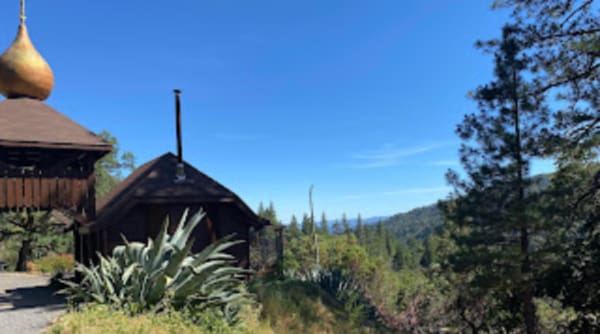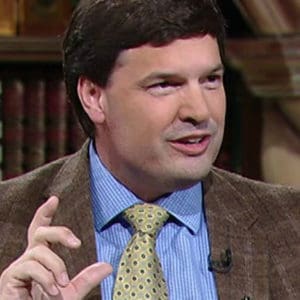One of my favorite churches is the Temple of St. Nicholas at Holy Transfiguration Monastery in Redwood Valley, California. The Byzantine Monastery was founded by Abbot Boniface Luykx, a Norbertine who participated as a periti at Vatican II. He was convinced that the Church needed to recover the riches of the East so he began to found Ukrainian monasteries first in Africa and then here in America.
I made a retreat at this beautiful place of prayer in Advent of 1988. The chanting and the silence, the icons and the forest, the fasting and the joy all live in my heart this many years later. Most of all, the bells calling us to prayer, ringing out through the valley, reminding the heart of resonances beyond this world. I remember the powerful conversation that I had with the Abbot. I remember also the witness of the monks – their dedication, perseverance, authentic joy.
Just as has been the case in so many communities, the monastery went through many difficult trials. Even still, Fr. Raymond Gawronski, so instrumental in building up the spirituality year in Denver and laying out the vision for a spiritual formation program at St. Patrick’s in Menlo Park, joined the monastery and found in its way of life an island of humanity. Notwithstanding natural and supernatural hardships, the community is dedicated to drawing close to the Lord and to conversion of life. The rhythm of silence and intense liturgy is challenging and refreshing at the same time. The monastery chapel, called the Temple of St. Nicholas, is at the very center of this holy work for God.
That this space should be dedicated to St. Nicholas is fitting. This saint was a man above all who encountered the Lord in a world that was hostile to the faith. The monks of Mt. Tabor also live by this encounter in historical and cultural circumstances not unlike those of the saint. Though he lived very simply in self-imposed poverty, St. Nicholas was known to be a very generous man and a giver of secret gifts to those most in need. This spirit lives in the monastery where souls come with all kinds of poverty to find the riches of Christ. The monks, as did the saint, live dedicated to conversion from sin, rigorous asceticism and kindness to others. This attracts young men who want something other than a meaningless and indulgent life. If St. Nicholas was noted for his loving concern for those entrusted to his pastoral care, so too the monks of Mt. Tabor who provide a refuge for those needing shelter from the fire storm of secularism raging in our time.
We need places of refuge and prayer, sacred places of healing and holiness to put us in touch with the truths to which St. Nicholas witnessed. If the monastery protects a great truth about living out our faith through dedication to the praise of God, St. Nicholas was a man of deep prayer who safeguarded the truth of the faith with courage. If the monks are dedicated to dying to themselves out of devotion to Christ, the presence of St. Nicholas in their midst reminds them that the love of God is more powerful than death.
There are many stories of St. Nicholas coming to the aid of the poor in his own lifetime, even raising from death those who suffered under great evil. Among the monks, there are men who also have been raised up by Christ to begin the discipline of the Christian life anew. After his death, the number of miracles attributed to him confirmed that St. Nicholas was a wonder-worker for the whole Church. Mt. Tabor also is a place of miracles where the veil of our Lady protects souls in peril.
This article was originally published on Beginning to Pray and is reprinted here with permission.
Image courtesy Anthony Lilles.





